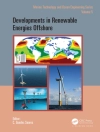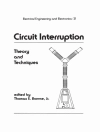In 1865, economist William Stanley Jevons published
The Coal Question, describing the crucial role that coal played in British economic development. Here, he enunciated what has come to be known as the Jevons paradox, which stated that improvements in resource efficiency leads to greater resource use as the expansion of scale occasioned by lower operating costs overwhelms the savings due to greater efficiency. The implications for any sustainability scenario are enormous and a major theme of this book. While
The Coal Question provided the theory that was a precursor to peak oil and resource limits to growth, it was followed six years later by the
Theory of Political Economy, the first English-language work of neoclassical economics, which denies the importance of energy as a special commodity.
In spite of this apparent contradiction, in this book biophysical economist Kent Klitgaard makes clear that there is no epistemological break between
The Coal Question and
Theory of Political Economy. Indeed, the Jevons paradox makes little sense in the absence of a behavioral theory grounded in marginal utility, which recognizes the satisfaction that each of us gains as consumers of one more unit of a good or service. Jevons could not solve this paradox in light of his belief that coal mines were becoming exhausted and more expensive to operate, and that there was no substitute for coal. However, he was uninterested in questions of sustainability; rather, he wanted to maintain British industrial and imperial dominance. Did the eventual substitution of oil for coal simply allow us to run through other resources at an accelerated rate? Indeed, the petroleum economy of the 20th and early 21st centuries has presented vastly expanded opportunities for the operation of the Jevons Paradox. This book shows the connections among the different paradoxes in Jevons’ work, and exposes the potentially fatal flaws that confound technological solutions to the sustainability challenge.
Cuprins
Good Jevons, Bad Jevons: William Stanley Jevons and the Roots of Neoclassical and Biophysical Economics.- Jevons the Empiricist: Gold; Coal; and Sunspots.- Jevons the Theorist: The Theory of Political Economy and the Roots of Neoclassical Economics.- Energy, Labor, and the Industrial Revolution.- Conclusion: Jevons’ Many Paradoxes and Thoughts for the Future.
Despre autor
Kent Klitgaard is a Professor
Emeritus of Economics and Sustainability at Wells College, having just retired from a thirty-year teaching career.
Kent is the co-author, in collaboration with Charlie Hall, of Energy and the Wealth of Nations, co-founder of the International Society of Biophysical Economics, and a board member of the Biophysical Economics Institute. He is the proud father of two adult children who have eschewed the corporate road to wealth in order to do good for the world.












